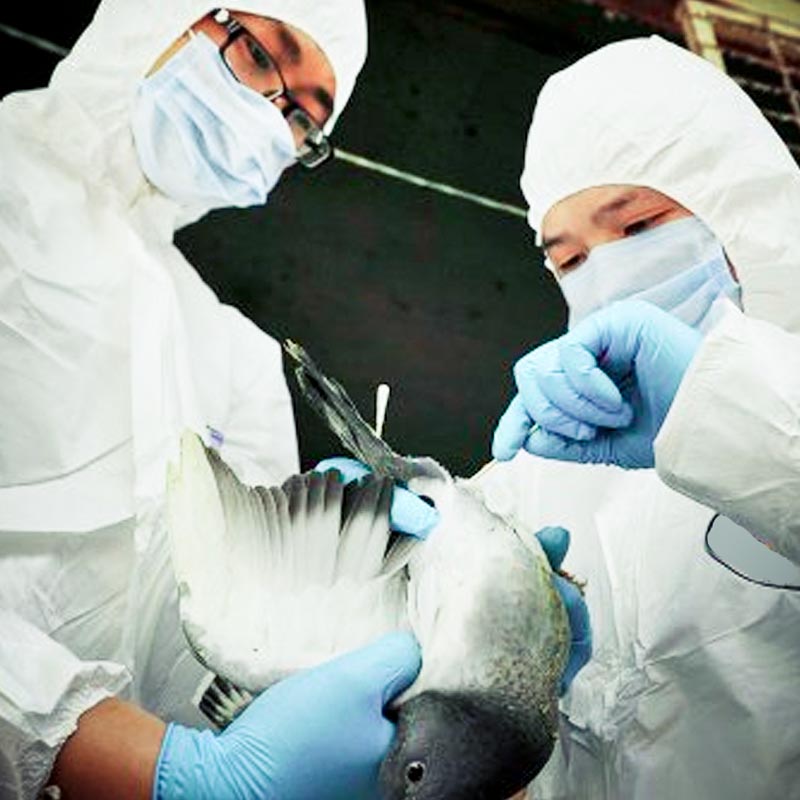The Secretariat of the Cabinet filed the report regarding epidemic in B.E. 2475, bubonic plague, cholera and smallpox were widely spreading. One hundred years later, health technology has turned those fatal diseases into common and preventable diseases. However, the evolution of bacteria is the cause to new infection alongside medical development especially the epidemiologists, the first checkpoint of epidemic crisis.
Epidemic is unpredictable. When it occurs, epidemiologists are the first group sent in the area for outbreak investigation. The epidemiologists collect full details of patient diagnosis and surrounding environment to analyze the cause of the disease and stop the outbreak to new groups as soon as possible. Therefore, epidemiology is considered important in numerous countries as well as its workforce and equipment. Prevalence of epidemic is low in some areas, such as in the United States of America where there are local epidemiologists in every state.
Epidemic is a rapid spread of an infectious disease at the same time in a community or a certain area at an abnormally high rate whereas the infected area is close to the emergence of the bacteria and able to spread into wider community.
The word ‘outbreak’ carries a similar definition with ‘epidemic’ and often used in replacement of each other. Nonetheless, it is used when infection is not serious and only limited within the community where the bacteria emerge.
According to International Health Regulations, it suggests the appropriate proportion of 1 epidemiologist per 200,000 population. As a consequence, Thailand should have 320 epidemiologists for 70 million population, yet the overall number of epidemiologist in the country is 171 not corresponding to Thailand Development Policy as an International Health Hub.
What is the cause of Epidemiologist shortage in Thailand?
Low pay wtih high risk of infection
Dr. Thanarak Plipat, Bureau of Epidemiology director, Department of Disease Control, Ministry of Public Health identified main factors of the epidemiologist shortage. It is because epidemiologist receives nearly half of the pay comparing those of fellow doctors in other fields. Also, the risk to be infected during disease investigation is high. Uncertain work schedule inhibits their ability to run an after-hours clinic as well.
The data from National Statistical Office suggests that the average number of newly graduated doctors each year is 1,500 and salary of public hospital doctor is between 30,000-100,000 baht while those of private hospital is 62,520-150,000 baht. Specialized doctors (e.g., physician, surgeon) earn an average of 100,000 baht or more.
Meanwhile, salary of the epidemiologist is based on the same rate as government officers starting from 40,000 which is nearly half of the salary recieved by newly graduated doctors. Therefore, there is only 3-5 newly graduated epidemiologists each year.
.jpg)
“A epidemiologist once told me that if he chose to be a spcialized doctor, he would earn a fortune from treating patients especially in private hospital. However, he would be able to cure them one by one, by being a epidemiologist, he could propose preventive measures to save thousand of lives from the disease”.
Epidemiology in Medical School as just an Equipment
Not only the risk during the working process is present, but also the pay is relatively much lower compared to other medical fields. The teaching in the field of epidemiology of Medical School stresses the importance of research study rather than treatment.
Wasittee Boonrasami, a senior medical student in Prince of Songkhla University, explained the reason why she did not choose the field of epidemiology. The reasons are the unforeseeable future of the path, the uncertainty of the pay and the majority work of the epidemiologist that is largely related to research study and implementing control measures.
“Most of medical students would like to treat patients and not to be a researcher or a university professor who teaches the subject of epidemiology”.
Dr. Poltep Wichitkunakorn of Prince of Songkhla Hospital, interested in specializing in epidemiology, stated two reasons for following this path; personal interest in research since high school and the shrinking number of epidemiology personnel.
Regarding the teaching of epidemiology in medical school, he thinks it is merely an instrument for research combined into several fields (e.g., obstetric, internal medicine) and still not unified. Moreover, epidemiology workforces are the professors teaching how to conduct research and not doctors providing medical care.
The additional key factor why this field is not providing great reward as other fields is because the main part of the work is to carry out research and not providing conventional treatment program. Most medical students think it does not fulfill the aim of being a doctor.
“If a boost of number in epidemiologists is needed, a change of attitude among personnel furthering study in medical education should be taken into account. Being a doctor is not only about the reward because in fact a big part of income is from the after-hours work and openning clinic” concluded by Dr. Poltep, the epidemiologist-to-be.
Go to 'จับตา' for “อันดับเงินเดือนแพทย์สาขาต่างๆ”
http://tcijthai.com/tcijthainews/view.php?ids=5457
Follow us on TCIJ Facebook Page for more update
www.facebook.com/tcijthai
Tags






